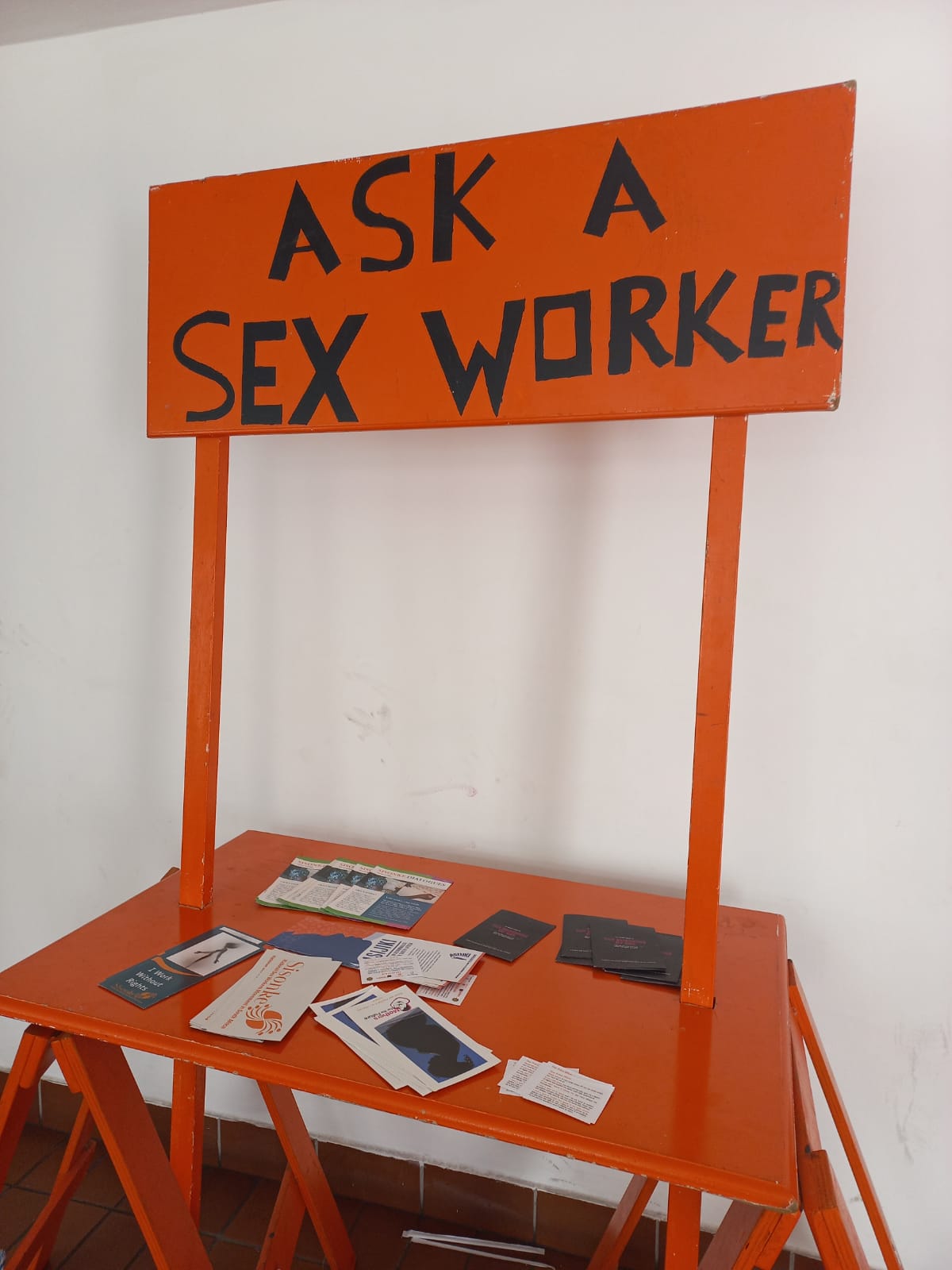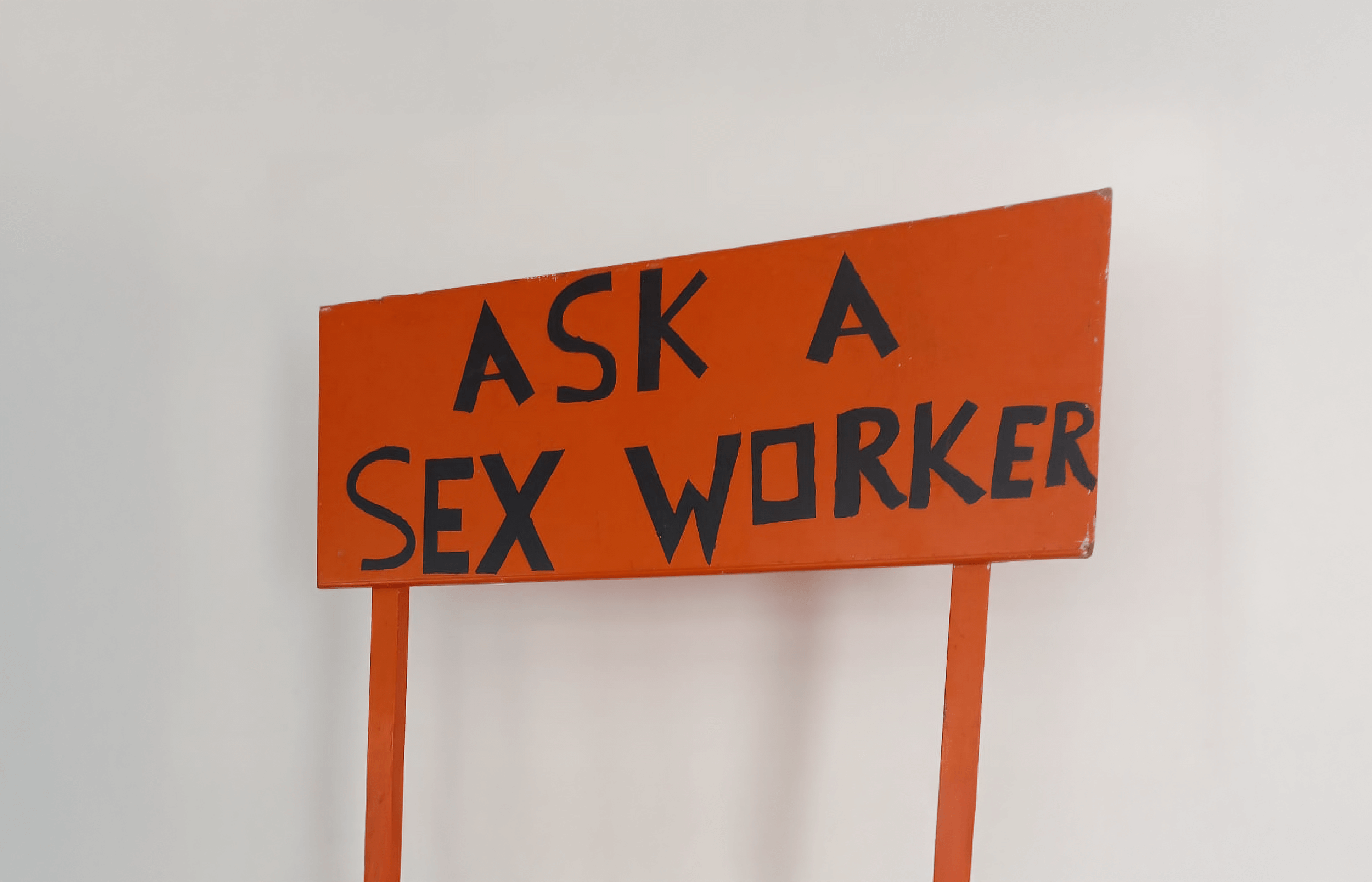Frequently asked questions
Sex work is often surrounded by stigma, stereotypes and misinformation. At Sisonke, we believe in answering questions openly and honestly to challenge myths, provide clarity, and strengthen understanding of our struggle. This FAQ was created to share accurate information about sex work, the laws that affect us, and what decriminalisation means for safety, dignity and human rights.
Here you will find answers to some of the most common questions people ask.

People’s reasons vary widely, many are complex, and there is no single “one size fits all.” Sex workers are not a monolith. Differences in background, motivation, safety, income, risk, and exit options are huge. Someone’s reasons may be multiple, shifting, or overlapping. Voluntariness is key.
The Sisonke National Movement cannot help with instructions on how to engage in sex work. But we can help you understand:
• what laws and risks might apply in South Africa,
• what support services exist (for safety, health, legal),
• what rights sex workers have and,
• harm-reduction strategies if someone is already in or considering entering that line of work.
• Criminalised status: Selling sex, buying sex, brothel keeping, pimping and related activities are currently illegal in South Africa under the Sexual Offences Act (1957) and later amendments such as the Criminal Law (Sexual Offences and Related Matters) Act (2007)
• Law-enforcement issues: Despite these prohibitions, sex work is widespread. The criminalization has not eliminated these activities, but has made conditions riskier; exposing workers to violence, stigma and legal vulnerability.
• Legislation in progress: South Africa has proposed the Criminal Law (Sexual Offences and Related Matters) Amendment Bill, 2022 to decriminalise both the selling and buying of adult consensual sexual services. This would repeal key sections of the 1957 Immorality Act (Sexual Offences Act) and sections of the 2007 Amendment Act that currently criminalise adult sex work.
• Public consultation & debate: The Bill was published for public comment in December 2022 and has sparked extensive discussion involving activists, government bodies, the Commission for Gender Equality, and others.
• The proposed decriminalisation Bill has not yet become law. Until the Bill passes through all the required legislative steps and survives any constitutional or legal challenges; sex work remains formally illegal.
• Meanwhile, sex workers remain exposed to criminal penalties, arrests and municipal by-law enforcement (for example around loitering, public nuisance), which can also be used to target workers despite their being informal or indoor.
• If the Bill passes, it would shift South Africa toward being one of the few countries to fully decriminalise adult consensual sex work, giving sex workers greater legal protections, access to services, possibilities for regulation and reducing stigma.
• Even so, decriminalisation does not automatically solve all challenges. It would need effective protections against exploitation, clear labour rights, safe work environments and enforcement that protects rather than penalises.
• Donate: Financial donations or resources to help with legal, health, outreach or advocacy work. www.sisonke.org.za/donate/
• Volunteer: Your skills, including, law, outreach, public communications, organizing to assist with our campaigns and fundraisers, events. www.sisonke.org.za/get-involved/
• Help raise awareness: Share Sisonke’s goals and stories on social media, broadcast the need for decriminalisation, challenge stigma and discrimination. www.sisonke.org.za/media-pack/
• Engage politically: Contact your elected representatives to support bills or laws that decriminalise sex work and protect sex workers’ rights.
• Sign up/ stay informed: Subscribe to our newsletter or follow us on our social media platforms to keep up with calls to action.
The Sisonke National Movement does not facilitate or arrange sexual services. We are a rights-based organization for sex workers, advocating for safety, dignity and the legal decriminalisation of consensual adult sex work in South Africa.
Instead of sourcing services, we offer:
• Legal support and referrals if rights have been violated.
• Access to health and counselling services, including HIV prevention tools and safer sex supplies.
• Advocacy for laws and policies to protect sex workers and ensure safer working conditions.
If you would like more about our work, ways to support us please visit www.sisonke.org.za or chat to us on WhatsApp +270660666441
No, that is a misconception. Sex work involves more than the act of sex with clients. Sex workers do far more than just the sexual act with clients. It’s a job that involves many kinds of labour, care, negotiation, risk-management, community work. There a various ways in which people work in the sex trade.
Types of sex workers:
• Street-based workers
• Brothel-based
• Escort services (“girlfriend experience/ sugar dating)
• Independent /in-call vs out-call work
• Cam/webcam performers and online content creators
• Strippers/ erotic dancers
• Phone sex/ erotic chat operators
• Erotic massage workers
• Porn actors/ Adult film performers
Even full-service sex workers (those who do physical sexual acts as part of their work), there are various aspects of the job.
Activities:
• Screening and negotiating with clients
• Travel, logistics, safety planning
• Setting terms around what services will or will not be done
• Health care: STI prevention, testing, protection (condom use)
• Emotional labour: dealing with stigma, possible trauma
• Legal/ rights work: understanding laws, seeking protection or support
• Understanding the variety and breath of sex work helps push back against assumptions and stigma.
• It shows why sex workers need legal protections, health services and respect; not just for ‘sex acts’ but for all the related work.
• It affirms sex workers’ agency in defining what kind of work they do, what services they offer and how they choose to work.
• The Sisonke National Movement supports the right of sex workers to choose what kind of work to do; from online content to in-person services and to set boundaries, access safety, health services and legal protection for all the work involved.
Are you looking for someone to talk to about something that happened at work or due to work? Schedule an appointment for guidance on your next steps. www.sisonke.org.za/contact/
